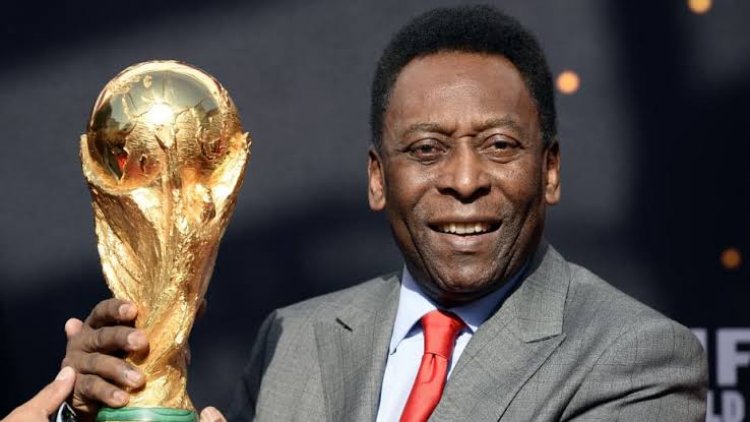Brazil Football Legend, Pelé Reportedly Dead
Brazilian football icon Pele, widely regarded as the greatest player of all time has died at the age of 82

Brazil football legend Pelé is dead at the age of 82.
The family announced his passing on Thursday evening, December 29, 2022.
The football icon is regarded as one of the greatest footballers of all time.
Pele had been receiving regular treatment from doctors ever since undergoing surgery to have a tumour on his colon removed back in September 2021.
But he was readmitted to hospital towards the end of 2022.
Named athlete of the century by the International Olympic Committee in 1999, Pele is the only footballer in history to win three World Cups — 1958, 1962 and 1970.
Nicknamed “O Rei” (The King), he scored more than 1,000 goals in one of the most storied careers in sport, before retiring in 1977.
He had been in increasingly fragile health, battling kidney problems and colon cancer — undergoing surgery for the latter in September 2021, followed by chemotherapy.
Known for his genius with the ball, he epitomized the sublime style of play called “samba football” in Brazil, where he was declared a “national treasure.”
He scored an all-time record 1,281 goals in 1,363 matches for Santos (1956-74), the Brazilian national team, and the New York Cosmos (1975-77).
But beyond his records, he will be remembered for revolutionizing the sport, his ever-present number 10 on his back.
Pele reached the pinnacle of his greatness at the 1970 World Cup in Mexico, the first broadcast in color, where he starred on what many consider the greatest team of all time, with talents such as Rivellino, Tostao and Jairzinho.
He was often welcomed like royalty when traveling abroad with Santos or the national team. Legend has it in 1969 his arrival in Nigeria was the occasion for a 48-hour truce in the bloody Biafra war.
Pele declined offers to play in Europe, but signed for a brief, lucrative swan song with the Cosmos at the end of his career, bringing his star power to the land of “soccer.”
His reign extended beyond the pitch, with gigs as a movie star, singer and later sports minister (1995-1998) — one of the first black cabinet members in Brazil.





































